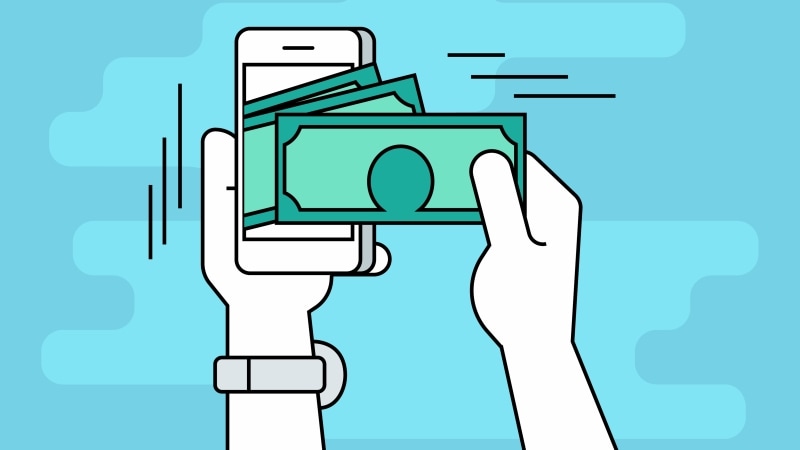- Home
- Apps
- Apps Opinion
- UPI 2.0 Could Be Great for Consumers, but Bad for Your Favourite Fintech Companies
UPI 2.0 Could Be Great for Consumers, but Bad for Your Favourite Fintech Companies

The Unified Payments Interface (UPI) launched a year ago, just ahead of the announcement of demonetisation. It's a useful alternative to mobile wallets, as it makes transferring cash from your bank accounts to other people as well as merchants as seamlessly as a wallet payment. Later re-christened BHIM-UPI adding the name of the BHIM app, UPI has grown quite a bit, with 76.7 million UPI transactions last month, as recently revealed by the RBI.
It is a tremendous jump for the UPI - up from 30.8 million transactions in September - and part of that growth can be attributed to the launch of Google Tez, and it's a figure that's very likely to grow again in the same way after WhatsApp adds UPI support.
However, this is just the tip of the iceberg, and the UPI is potentially going to be a major disruptor in payments soon with a number of innovations in the pipeline, collectively called UPI 2.0.
The National Payments Corporation of India (NPCI) is expected to release UPI 2.0 soon, and the upgraded version brings in a number of interesting features, including biometric authentication and pre-authorised transactions. Both of these could be real game changers, and majorly disrupt the fintech landscape in India.
![]()
The addition of e-mandates in particular is something that a number of companies have told Gadgets 360 they're waiting for before integrating the UPI as a payments offering. With e-mandate, users will be able to allow apps to automatically complete payments (with limits to prevent misuse, of course). Once this is in place, it'll be possible to - for example - pay for an Uber with your UPI-linked bank account in much the same way you are able to use Paytm right now. That is to say, you authorise it the first time, and after that it automatically deducts money every time you use a cab, with no intervention.
That's a huge change from the way it currently works on UPI - right now, if you book an Uber and pay via UPI, the process is as follows. Your ride ends, and the car leaves. After that, you spend your time outside doing whatever it was you needed to do. Once it's time to head back, you open the Uber app, and try and book a journey.
At that point, Uber reminds you about the pending payment, and you tap on a button to send a UPI request to your ID. We're not done yet though. Now, you have to exit the Uber app, go to whichever app you use to manage the UPI, enter your PIN, and finally approve the transaction, before you can go back to Uber to book your cab.
In short, it's a horrendous experience that shouldn't have been made live in the first place. In contrast, if you have a linked Paytm wallet, you just walk out of the Uber, and book the next one whenever you want to, as long as there's money in your account.
![]()
The challenge there was remembering to keep topping up your wallet - also an inconvenience. With UPI 2.0, you'll get the ease of a wallet, without even having to bother with top-ups. Nor will you have to deal with multiple wallets, each of which are accepted only on some merchants.
Uber isn't the only company which would be affected by UPI 2.0 either - any service that involves recurring payments could benefit from integration with UPI 2.0, and companies such as Zomato, Netflix, and Amazon all have plans in this direction.
UPI 2.0 could enable bill payments for companies like Netflix and Amazon; e-mandate could work wonders for regular transactions such as cabs and restaurants; and biometric authorisation could make it easier to use your BHIM UPI apps - presently you have to type in a PIN every time.
This sounds great for us as consumers, but there are some fintech companies that could well find their business disrupted by these changes. The most obvious one is wallets - one of the big advantages of wallets is the ease of use, and e-mandate could actually be simpler to use than a wallet, as you won't have to top it up. Biometric authorisation would also make it faster and simpler to pay even for apps you haven't preauthorised.
![]()
But wallets like Paytm aren't the only ones who could be affected. Buy now, pay later companies such as Simpl, ePayLater, and LazyPay from PayU also allow for fast checkout, with the added benefit of allowing you to consolidate all your payments. With wallets, your payments are locked into silos, but with pay later companies, the advantage has been that you can bring all your payments into a single system. UPI already accomplishes that, and with UPI 2.0 if there is wider adoption - and that's something that several companies have told Gadgets 360 to expect - then the impact on these companies could be huge, particularly as they're still growing in terms of acceptance.
When UPI 2.0 launches - and that's still expected to happen sometime this year - a lot of companies that have been growing in the payments space in India are going to have to rethink. We're seeing this happen in some ways - Paytm, for example, used the Paytm Payments Bank to hop on to the UPI bandwagon. Other companies will also have to find ways to adapt and adopt new technologies, or else risk getting left behind in what's proving to be a very volatile business.
Disclosure: Paytm's parent company One97 is an investor in Gadgets 360.
Catch the latest from the Consumer Electronics Show on Gadgets 360, at our CES 2026 hub.
Related Stories
- Samsung Galaxy Unpacked 2025
- ChatGPT
- Redmi Note 14 Pro+
- iPhone 16
- Apple Vision Pro
- Oneplus 12
- OnePlus Nord CE 3 Lite 5G
- iPhone 13
- Xiaomi 14 Pro
- Oppo Find N3
- Tecno Spark Go (2023)
- Realme V30
- Best Phones Under 25000
- Samsung Galaxy S24 Series
- Cryptocurrency
- iQoo 12
- Samsung Galaxy S24 Ultra
- Giottus
- Samsung Galaxy Z Flip 5
- Apple 'Scary Fast'
- Housefull 5
- GoPro Hero 12 Black Review
- Invincible Season 2
- JioGlass
- HD Ready TV
- Laptop Under 50000
- Smartwatch Under 10000
- Latest Mobile Phones
- Compare Phones
- Samsung Galaxy A07 5G
- Vivo Y500i
- OnePlus Turbo 6V
- OnePlus Turbo 6
- Itel Zeno 20 Max
- OPPO Reno 15 Pro Mini 5G
- Poco M8 Pro 5G
- Motorola Signature
- Lenovo Yoga Slim 7x (2025)
- Lenovo Yoga Slim 7a
- Realme Pad 3
- OPPO Pad Air 5
- Garmin Quatix 8 Pro
- NoiseFit Pro 6R
- Acerpure Nitro Z Series 100-inch QLED TV
- Samsung 43 Inch LED Ultra HD (4K) Smart TV (UA43UE81AFULXL)
- Asus ROG Ally
- Nintendo Switch Lite
- Haier 1.6 Ton 5 Star Inverter Split AC (HSU19G-MZAID5BN-INV)
- Haier 1.6 Ton 5 Star Inverter Split AC (HSU19G-MZAIM5BN-INV)

















